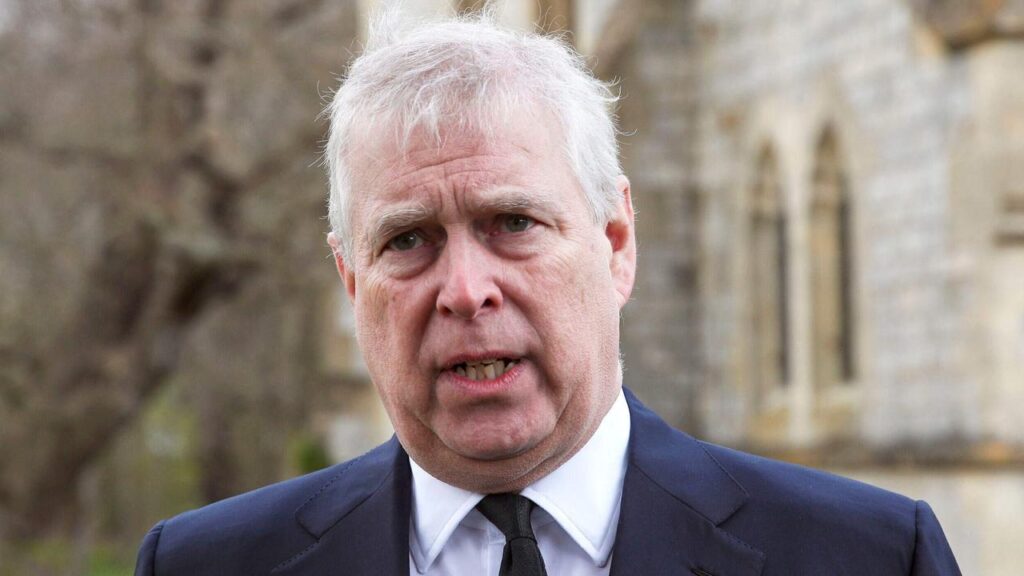
The former Duke of York, Prince Andrew, is facing fresh humiliation as plaques honoring his military service in the Falklands have reportedly been removed. This development comes as he continues to live in isolation at Royal Lodge, awaiting eviction. The Mirror reports that several plaques bearing his name, commemorating his efforts during the 1982 conflict, have been taken down.
During his 22-year career in the Royal Navy, Andrew returned to the UK celebrated for his role as a helicopter co-pilot defending the Falklands. His late mother, Queen Elizabeth II, famously greeted him in Portsmouth with a red rose. Over the years, Andrew visited the Falklands multiple times to unveil memorials and public buildings, earning the Falklands Medal for his bravery.
Removal of Plaques and Club Expulsion
According to reports, at least three tablets bearing Andrew’s name have been removed since 2022. This symbolic removal is seen as part of a broader distancing from Andrew by institutions once closely associated with him.
Meanwhile, The Telegraph reported over the weekend that Andrew has been expelled from The Savage Club, an exclusive gentleman’s club with a storied history that includes former members like his late father, Prince Philip. A notice from the club stated,
“The General Committee has resolved that, in light of recent public developments, the Honorary Life Membership previously held by The Duke of York has been withdrawn. This decision has been taken solely in the interests of upholding the Club’s established traditions and standards.”
Stripped of Titles and Eviction
Last month, King Charles III stripped Andrew of his titles and honors, formally evicting him from Royal Lodge in Windsor. This decision follows mounting pressure over Andrew’s ties to the late financier and convicted sex offender Jeffrey Epstein. The last time a royal title was removed was 106 years ago, following World War One, when the Dukes of Cumberland and Albany were penalized for siding with Germany.
The scandal surrounding Andrew reignited with the leak of an email to Epstein, contradicting Andrew’s previous claims of severing ties. This coincided with the release of Virginia Giuffre’s memoir, Nobody’s Girl, where she details alleged encounters with Andrew, including one when she was 17. Andrew has consistently denied any wrongdoing.
Public and Royal Response
The release of Giuffre’s memoir and the leaked emails have intensified scrutiny on Andrew, reaching unprecedented levels. In an attempt to quell the fallout, Andrew initially offered to relinquish the use of his Duke of York title, but this gesture failed to appease public outcry.
In a statement from Buckingham Palace, it was announced,
“His Majesty has today initiated a formal process to remove the style, titles and honours of Prince Andrew. Prince Andrew will now be known as Andrew Mountbatten Windsor.”
The statement continued,
“His lease on Royal Lodge has, to date, provided him with legal protection to continue in residence. Formal notice has now been served to surrender the lease and he will move to alternative private accommodation. These censures are deemed necessary, notwithstanding the fact that he continues to deny the allegations against him. Their Majesties wish to make clear that their thoughts and utmost sympathies have been, and will remain with, the victims and survivors of any and all forms of abuse.”
Implications and Future Outlook
The removal of plaques and club expulsion symbolize a broader societal and institutional rejection of Andrew. The royal family’s actions reflect a commitment to maintaining their reputation amidst ongoing scandals. As Andrew transitions to a life outside the royal spotlight, questions remain about his future role and the long-term impact of these events on the monarchy.
With the royal family taking decisive steps to distance themselves, the focus now shifts to how Andrew will navigate his life post-royalty. Observers will be watching closely to see if he can rehabilitate his public image and what further revelations may emerge.





